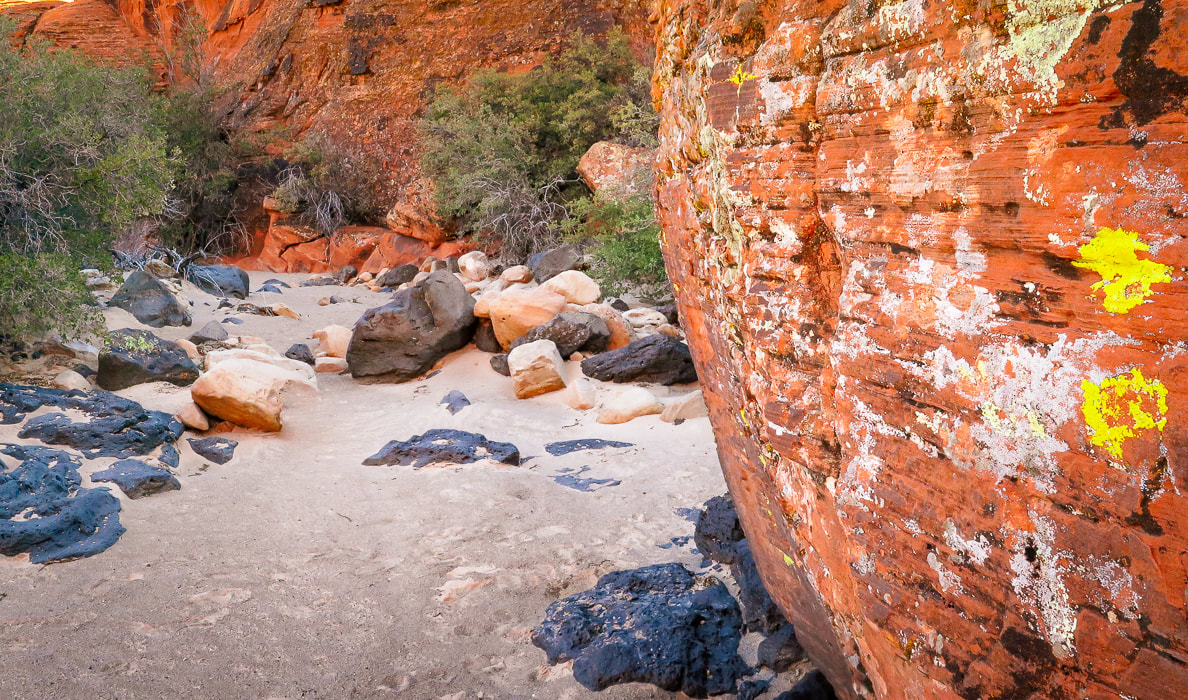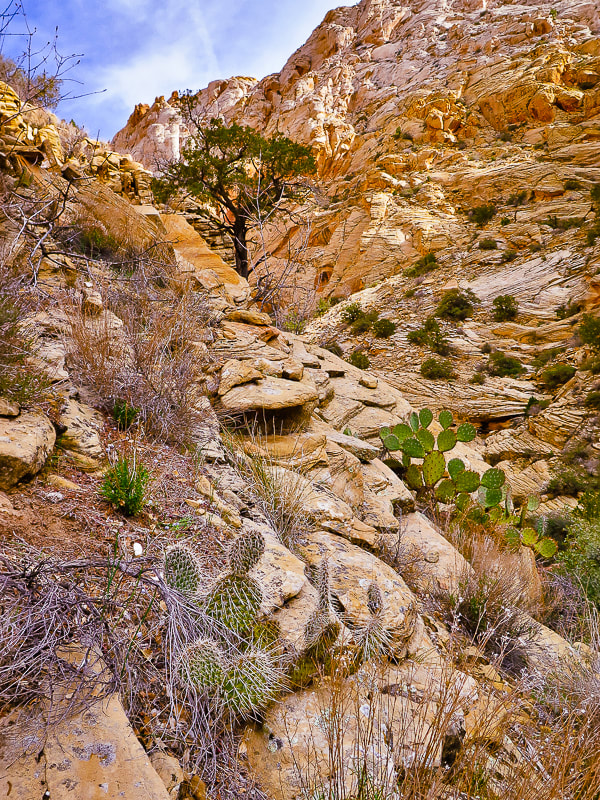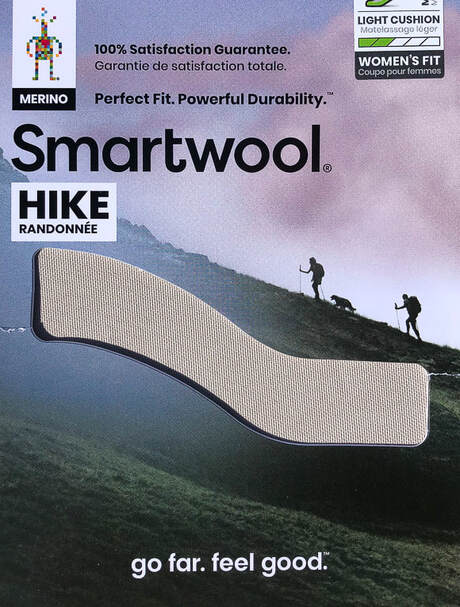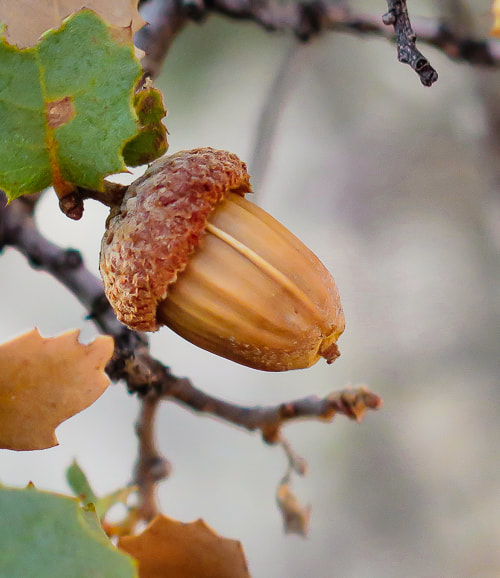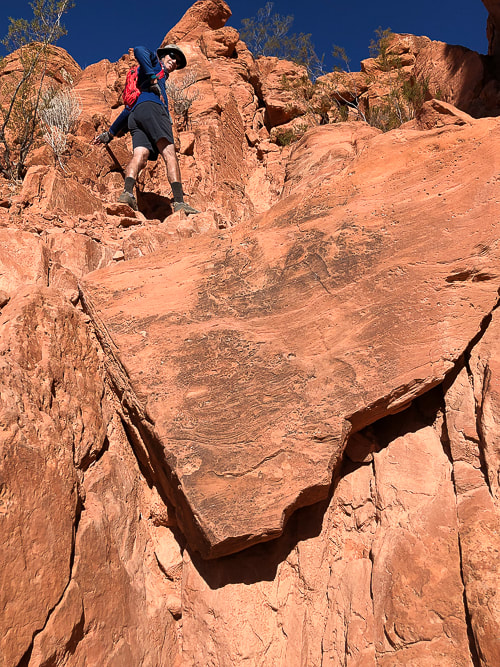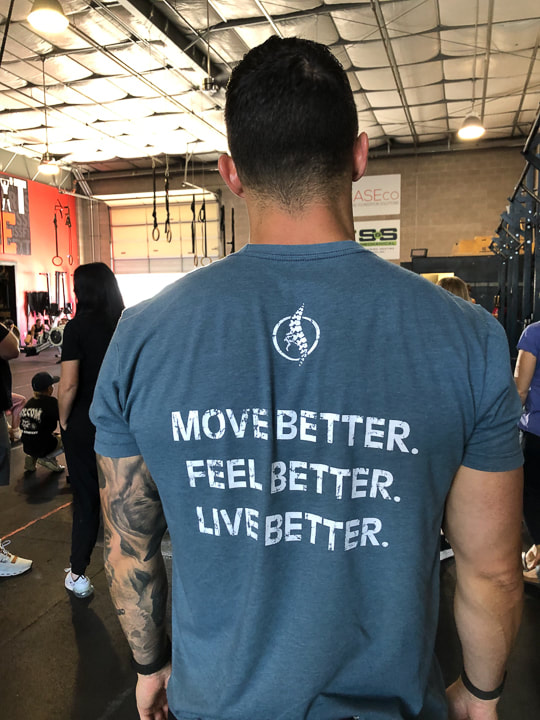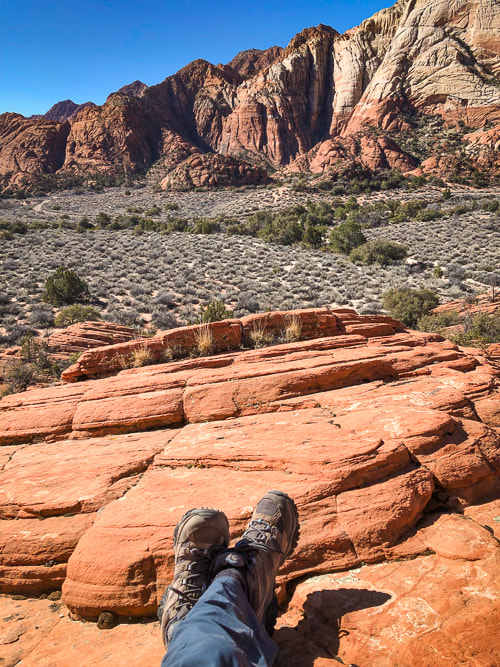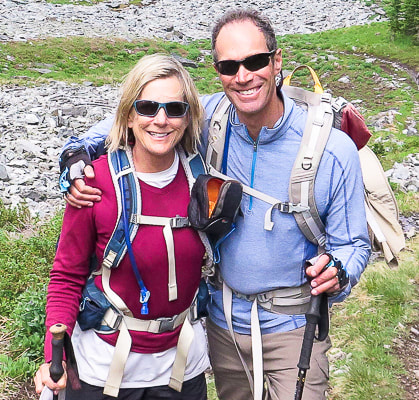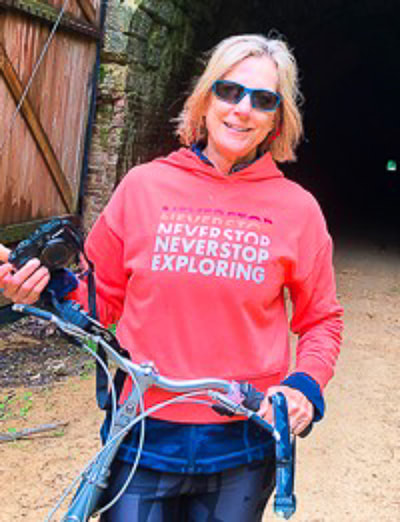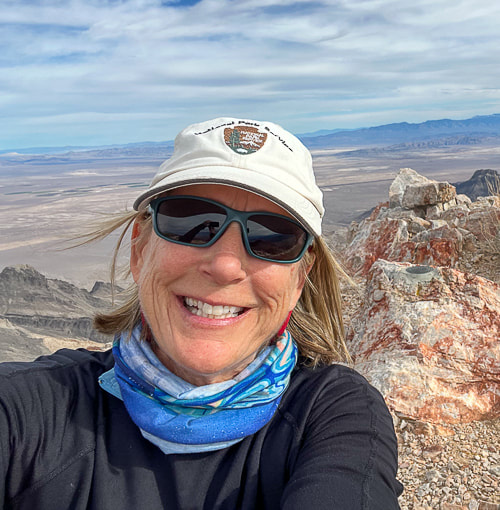|
More evidence on how exercise helps our brain and immune system, increase our resiliency and decrease anxiety and depression, and how "nature experiences" decrease rumination, a negative emotion. Plus, scenes from a few walks in Snow Canyon State Park.
More resources on Exercise and Mental Health and the Neurofit Lab's Mental Health Tool Kit at end of this post. Red Sands trail in Snow Canyon State Park Next month I will be back with another adventure post - in this and the last post, I wanted to pass along the positive news of the mind/body connection and how we can find strength, resiliency, optimism and better health. Many of us know the connection between a walk in nature and feelings of optimism, relaxation and happiness. Hiking elevates your mood, decreases anxiety, and helps open your mind for creativity. For the lucky ones, including me, nature is virtually outside my front door. I'm close to Snow Canyon State Park near St. George, where I can walk in the famous picturesque world of Utah's red rock country. However, you don't need this dramatic scenery in order to improve your mood. A study by Stanford University on nature experience and the brain has found that participants who walked in a grassland/oak/shrub environment "greenspace" reported greater feelings of well-being and less stress than those who walked in an urban setting. The question is, "what effect does living in an urban environment have on our mental health?" What surprised me is that humanity is removed from nature more than ever: more than 50% of people live in urban areas. The forecast for the proportion of urban dwellers in 2050 is 70%. Yikes! "Running is Medicine for my Mind": All the Good Brain Neurochemicals In her Nike Trained: Mental Health Miniseries podcast, neuroscientist and expert in brain health, Jennifer Heisz, PhD. discusses her recent research that shows a definite connection between exercise and movement and the release of brain neurochemicals that decrease anxiety and depression. Her new book, Move the Body, Heal the Mind: Overcome Anxiety, Depression, and Dementia and Improve Focus, Creativity, and Sleep, highlights her latest research in her Canadian lab. Her biggest revelation is that exercise has been found to be equally as beneficial as medication for anxiety and depression, and in some cases, even better than meds. Those that need to stay on their medications, by additionally doing exercise, can lessen potential side-effects from the medications. Heisz also weaves into her book her personal journey of the mental benefits she obtained while training for an Ironman Triathlon - resiliency is one. She made the huge transition from a sedentary academic to a triathlete to experience first-hand exercise's effects on the brain. Because the Ironman Triathlon was cancelled due to the pandemic in 2020, she laid out and completed her own course! Dr. Heisz's website for her book and back story. Exercise, because it acts as an anti-inflammatory, has been found to strengthen the immune system to fight infections. Chronic stress that can cause stress-induced depression compromises the immune system. A health paradox that Heisz discovered from her research, especially apparent during the COVID pandemic, was that many of us wanted to exercise more to improve our mental health, but symptoms of depression and anxiety were getting in the way of doing so. A recent study found that active participants reported less stress during shelter-in-place than did non-active participants.
Endocannabinoids, our body's natural production of cannabis are produced during exercise, helping us to feel mellow, balanced, and content. Endorphins, the body's natural pain killer are also released. I like to say that hiking produces the vital nutrients to thrive - my medicine! In my last post, Experiencing "Flow": The Secret to Happiness, I wrote about what I've known for years: hiking and exercise is crucial for my mental health. Going to a Tai Chi class for eight years really helped me handle and the stress I felt from work. A boy in my class was learning how to utilize Tai Chi for his ADHD disorder, rather than use medications. High-Intensity Interval Training - HIIT During HIIT, you push your body through intervals of near maximal effort with rest in between. In almost all cases, high intensity interval training is beneficial for people with mental illnesses. By maintaining a certain level of stress, your body learns to adapt and then becomes stronger. There is one caveat: people who have anxiety sensitivity, or fear of the normal symptoms that accompany exercise may react negatively to HIIT. Some people are afraid of their hearts beating too fast, or of the feeling of trying to catch their breath, and they over-exaggerate their symptoms. These people benefit from lower intensity exercise, potentially increasing fitness by adapting to increments of challenging exercise.
Neurochemicals immediately released in your brain after exercise. Basalt flowed into what is now Snow Canyon State Park, covering red and yellow sandstone. Reduce Rumination - Feel Better! The Stanford study set out to answer the question: "by what mechanism(s) might nature experience buffer against the development of mental illness?" (quoted from the study). It found that nature walks decreased rumination, a dysfunctional pattern of negative self-thought that's associated with depression and other mental illnesses. The subgenual prefrontal cortex becomes activated during rumination. Participants had a brain scan which showed blood flow to this part of the brain. The researchers' hypothesis was correct: blood flow in the subgenual prefrontal cortex decreased after the nature experience used in the study, thereby reducing rumination. This state of decreased rumination also occurs with experiencing "flow" where you are so wrapped up in an activity that you focus on the joy it brings, rather than yourself. Flow occurs in all sorts of people, in all sorts of endeavors where levels of challenge and skill are more or less are equal and at relatively high levels. Thousands of people have been interviewed to share their flow experiences: monks, writers, artists, mountain climbers, surgeons, etc. A common theme is reported - a feeling of optimal happiness and satisfaction. Mix in friends on your hike and nature walks and you have the perfect ingredients for contentment, hope, and happiness. We need to take care of our mental health just as much as we do our physical health, and the research linking movement and mental health is long overdue. Our bodies are a gift! These studies also illustrate the importance of "green spaces" in our urban areas to help reduce mental illnesses. For help with motivation, you can download the Mental Health Tool Kit from Dr. Heisz's Neurofit Lab that identifies problems encountered since the onset of COVID and solutions to get you going. Keep moving, keep hiking, keep exploring! "The wonderful things in life are the things you do, not the things you have." - Reinhold Messner, mountaineer
Sunrise near Snow Canyon State Park's entrance. Books on Mind/Body Connection and Movement
On-Line Article The chronic stress of coronavirus is affecting your mental health. Here's how exercise can help. The Conversation. Dr. Heisz's Trained Podcast Dr. Heisz's book and back story website References
Bratman, G., Hamilton, J.P., Hahn, K., Daily, G., Gross, J. 2015. Nature experience reduces rumination and subgenual prefrontal cortex activation. PNAS. Cirino, E. 2019. Ten Tips to Help You Stop Ruminating. Healthline website. Dusenbery, M. How Exercise Affects 2 Important 'Happy' Chemicals in your Brain. Livestrong.com NIH - National Library of Medicine. Physical activity and stress management during COVID-19: a longitudinal survey study. January 2022. Nike Trained: Body and Mind Mental Health Miniseries - Jennifer Heisz, PhD. Podcast: Season 9 Episode 9. Rogers, Marilyn. Doctors Tell Us How Hiking can Change our Brains. From website Lifehack. https://www.lifehack.org/363786/doctors-agree-hiking-good-for-your-mental-health
2 Comments
11/9/2023 09:40:50 am
I wanted to express my gratitude for your insightful and engaging article. Your writing is clear and easy to follow, and I appreciated the way you presented your ideas in a thoughtful and organized manner. Your analysis was both thought-provoking and well-researched, and I enjoyed the real-life examples you used to illustrate your points. Your article has provided me with a fresh perspective on the subject matter and has inspired me to think more deeply about this topic.
Reply
11/9/2023 10:04:19 am
I wanted to express my gratitude for your insightful and engaging article. Your writing is clear and easy to follow, and I appreciated the way you presented your ideas in a thoughtful and organized manner. Your analysis was both thought-provoking and well-researched, and I enjoyed the real-life examples you used to illustrate your points. Your article has provided me with a fresh perspective on the subject matter and has inspired me to think more deeply about this topic.
Reply
Leave a Reply. |
Categories
All
About this blogExploration documentaries – "explorumentaries" list trip stats and highlights of each hike or bike ride, often with some interesting history or geology. Years ago, I wrote these for friends and family to let them know what my husband, Fred and I were up to on weekends, and also to showcase the incredible land of the west.
To Subscribe to Explorumentary adventure blog and receive new posts by email:Happy Summer!
About the Author
|

